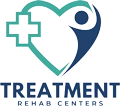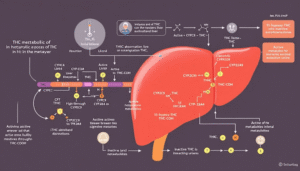Knowing how many times insurance will pay for rehab is really important if you (or a loved one) are struggling with a substance use disorder. Insurance coverage for drug or alcohol treatment can vary greatly depending on your policy.
But how many times will insurance pay for rehab?
While policies vary widely, insurance is often the key to getting treatment. Here we’ll break down how insurance works for rehab, including carrier policies, state by state, and tips to get the most out of your coverage.
How Insurance Covers Rehab: The Basics
What Kind of Plans Are There?
When it comes to insurance plans that cover rehab treatment there are:
- Health Maintenance Organization (HMO) Plans: These plans require you to see providers in their network to be covered. They have lower premiums but less flexibility in choosing healthcare providers.
- Preferred Provider Organization (PPO) Plans: PPO plans have a wider range of providers and more flexibility but higher copays for out-of-network care.
- Exclusive Provider Organization (EPO) Plans: Like HMOs, EPO plans require you to see a network of providers but may have some out-of-network coverage.
- Point of Service (POS) Plans: These plans combine HMO and PPO features, allowing you to choose between in-network and out-of-network care at the point of service.
- Medicare and Medicaid: Government-funded plans that can cover rehab treatment for eligible individuals, coverage varies by state and plan.
- Private Insurance Plans: Purchased through an employer or individually, these plans have varying levels of coverage for rehab treatment depending on the specific health insurance plan.
Knowing what kind of insurance plan you have is vital to getting coverage for substance abuse treatment and mental health services and making sure your forms of insurance cover rehab.
How Do I Find Out What Rehab is Covered by My Insurance Plan

Finding insurance coverage for rehab treatment can be overwhelming but here are ways to find out what your plan covers:
- Call Your Insurance Company: Call the customer service number on the back of your insurance card to ask about coverage for rehab treatment.
- Review Your Insurance Plan: Look at your policy documents which should outline covered services and exclusions.
- Call a Rehab Center: Many rehab centers have staff that specialize in insurance verification. They can help you understand your coverage and answer your questions.
- Online Tools: Trusted sites such as our resources at TreatmentRehabCenters.org have online tools to check coverage for specific substance abuse treatment programs and services.
By doing these you’ll get a clear understanding of your coverage and make informed decisions about your treatment.
The ACA and Addiction Treatment
The Affordable Care Act (ACA) requires all insurance plans in the U.S. to cover mental health and substance use disorder (SUD) treatment to ensure that forms of insurance pay for rehab without exclusions due to pre-existing conditions.
As part of The Affordable Care Act, includes services like detox, inpatient and outpatient rehab, and medication-assisted treatment (MAT). However, the number of covered treatment episodes where insurance will pay for rehab can vary depending on the policy and your medical history. Knowing your health insurance plan is key to getting the benefits the ACA requires.
Limits
While most plans allow multiple rehab stays, insurance coverage for rehab can vary greatly. There may be limits such as annual caps, lifetime caps, or restrictions based on a number of previous relapses.
Some insurers require patients to show a serious commitment to recovery such as enrolling in aftercare or therapy programs after rehab, and the out-of-pocket expenses may vary based on the number of times you have used your health insurance providers’ benefits, particularly within a calender year of coverage.
Your particular health insurance plan will also delineate how many times will insurance pay for rehab, and different health insurance companies have different policies in place when it comes to this.
Calling our team at TreatmentRehabCenters.org can assist in finding how your plan will cover substance abuse treatment, usually within minutes, via a confidential call.
Insurance Provider Policies on Rehab Coverage

Private Carriers
- Blue Cross Blue Shield: They cover inpatient and outpatient rehab but may require pre-authorization and medical necessity documentation. Coverage caps are plan-specific.
- Aetna: Aetna covers detox, inpatient rehab, and MAT but emphasizes evidence-based treatment. Some plans may limit the number of rehab stays in a calendar year.
- Cigna: Known for comprehensive behavioral health coverage, Cigna often has multiple levels of care. Repeated stays may trigger an additional review.
- UnitedHealthcare: Wide coverage but plans often have network restrictions, you must choose a facility within their network to get the most benefits.
Public Programs
- Medicare: Covers inpatient under Part A and outpatient under Part B but beneficiaries may have restrictions on a number of admissions without a strong medical reason. SAMHSA guidelines influence Medicare coverage for addiction treatment.
- Medicaid: Varies by state but generally covers SUD treatment. Many states now cover MAT and other recovery services with no limits as long as they meet medical necessity.
Check with Your Insurance Provider
Verifying your insurance coverage for drug and alcohol rehab treatment is another crucial step. To do this you will need to:
- Policy number
- Your name and date of birth
- Name and address of the rehab center you want to attend
- Description of the treatment you are seeking
You can verify by:
- Online Tools: Many insurance providers have online portals where you can check your coverage.
- Call All the Rehab Centers You Are Considering: Many rehab centers offer free insurance verification. They can call your insurance provider on your behalf to confirm your coverage. This can be time-consuming, and experts such as our caring team at TRC.org can help make the process much easier.
- Call or contact our caring team at TreatmentRehabCenters.org, with confidential support available now.
By doing this you will know what your insurance covers and can plan for your treatment.
A Sampling States with Rehab-Friendly Carriers

Four States That Lead the Way
- California: With Medicaid expansion and state regulations, California has good coverage for SUD treatment. Private carriers in the state offer multiple rehab stays.
- Massachusetts: Known for healthcare, Massachusetts requires insurance carriers to offer addiction treatment services with no limits.
- Florida: With many treatment centers, Florida has rehab-friendly insurance policies. Many carriers offer flexible terms to meet the demand.
- New York: New York requires insurance carriers to cover medically necessary rehab stays including relapse treatment.
Relapse and Insurance: A Real World Problem
Relapse is part of the recovery journey and most insurance providers know this. However, chronic relapses or multiple rehab stays can trigger insurers to re-evaluate the effectiveness of inpatient and mental health treatment.
In these cases, health insurance plans and their providers may recommend alternative treatment like outpatient programs or intensive therapy.
Insurers may also assign a case manager to manage care for individuals with multiple treatment histories. This involves evaluating if changes in approach – like trying new therapies or facilities – could produce better results.
Aftercare Programs
According to the Substance Abuse and Mental Health Services Administration (SAMHSA), aftercare programs are pivotal foundations for supporting long-term recovery success and preventing relapse.
These programs provide ongoing support and guidance to help you develop coping skills and strategies for managing triggers. They also offer a sense of community and connection with others in recovery, accountability, and motivation to stay on track with your recovery goals.
Aftercare programs may include:
- Outpatient Counseling: Regular sessions with a therapist to address ongoing issues and support recovery.
- 12-Step Meetings: Peer support groups that follow a structured program to stay sober.
- Support Groups: Groups to share experiences and get support from others in recovery.
- Relapse Prevention Classes: Educational sessions to learn how to identify and manage triggers to prevent relapse.
- Medication Management: Ongoing management of medication-assisted treatment to support recovery.
Being in aftercare programs can increase the chances of long-term recovery and justify additional insurance coverage if needed.
Get the Most Out of Your Insurance

Read Your Policy
First, read your health insurance policy. Look for:
- Annual or lifetime limits on rehab coverage.
- Pre-authorization requirements for treatment.
- In-network provider restrictions which can save you out of pocket costs.
Work with Expert Staff
At TreatmentRehabCenter.org, can can help you verify your benefits, appeal denied claims, and make sure you get the most out of your coverage and health insurance policies.
Look into State Programs and Alternatives
If your insurance denies coverage look into state-funded programs or financial aid options offered by treatment centers.
Many states especially those with Medicaid expansion have alternative funding to get you into care, and let you know what state health insurance coverage offers.
Choosing the Right Program
Choosing the right program involves considering several things to make sure it’s right for you:
- Level of Care: Decide if you need inpatient or outpatient care based on the severity of your addiction or mental health condition.
- Type of Treatment: Look for programs that treat your specific addiction or mental health condition.
- Location: Do you want a center near home or in a new location for a fresh start?
- Cost: What’s your budget for treatment and what options fit within that?
- Insurance Coverage: What’s covered by your insurance to minimize out-of-pocket costs?
By considering these factors you can choose a program that gives you the best chance of recovery.
How Many Times Will Insurance Pay for Rehab: Inpatient vs Outpatient
- Inpatient Rehab: This type of program requires you to live at the center for a specified amount of time, typically 30, 60, or 90 days. Inpatient rehab provides 24/7 care and support, good for those who need intense treatment.
- Outpatient Rehab: This program allows you to live at home and attend sessions at the center. Outpatient rehab is good for those who need a lower level of care or have work or family commitments.
When choosing between inpatient and outpatient rehab:
- Your addiction or mental health condition
- Your need for support and guidance
- Your budget and insurance coverage
- Your work and family commitments
Understanding these will help you choose the right type of program for you and make sure your insurance covers your treatment.
Getting Substance Abuse Treatment Without Insurance
If you don’t have insurance drug or alcohol treatment can be costly. Detox alone can cost between $1,500 and $5,000 and 30-day inpatient programs can cost between $5,000 and $20,000.
Outpatient rehab services are usually more affordable, $1,000 to $10,000 per program. Look into alternative funding or non-profit options in these cases.
Holistic and Customized Care
To get long-term recovery and insurance approval for multiple stays look for programs that offer holistic care.
Facilities with comprehensive services (therapy, MAT, aftercare) have higher success rates. Showing commitment to a robust treatment plan also helps justify additional coverage and can increase the available insurance benefits you have.
What’s the Bottom Line: Does Insurance Cover Rehab After Relapse?
- Insurance covers multiple stays but the number depends on policy and personal treatment history.
- Major carriers like Blue Cross Blue Shield, Aetna, and UnitedHealthcare have varying levels of coverage, often tied to pre-authorization and medical necessity.
- States like California, Massachusetts, Florida, and New York have more rehab-friendly insurance policies.
- Relapse is part of recovery but chronic relapse may lead to stricter insurance reviews.
- Knowing your policy, and using facility resources and state programs can help you get the care you need.
Make a Move to Get the Help You Deserve Today

Whether you’re a third-time rehab client or you are seeking a specific form of treatment you know will prove more effective on your fifth time in treatment, knowing how to navigate insurance coverage can make all the difference.
At TreatmentRehabCenters.org, we know that rehabilitation services are an investment in yourself and with the right support from us and options matched to your needs, you can get the most out of your benefits and focus on recovery.
Please don’t hesitate. Make the confidential call to our caring team today, and get options to support your recovery now!











